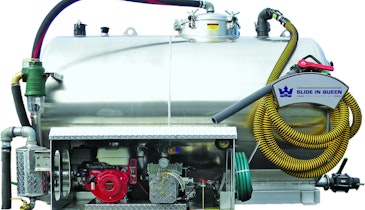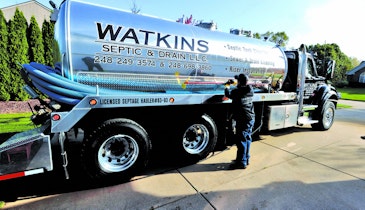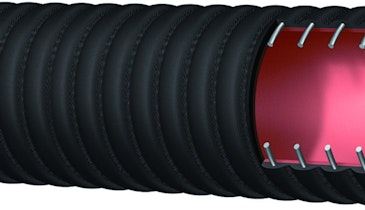This feature in Pumper® reports noteworthy conversations that take place in the Pumper Online Discussion Forum for industry professionals found at www.pumper.com. The forum is split into several topic areas: General Discussion, Business, Parts & Accessories, Portable Sanitation, Pumps & Blowers, Septic System Installation, Septic System Service & Maintenance and Trucks. Simply register with a user name and password and join the discussion!
Information and advice in Overheard Online is offered in good faith by industry professionals. However, readers should consult in depth with appropriate industry sources before applying such advice to a specific business situation.
Should I start pumping car wash pits?
Question:
Is anyone pumping car wash pits? I’m looking to add another service, but would like to know more. Specifically, tell me about disposal issues. Is car wash pit waste considered hazardous?
Answers:
It usually isn’t considered hazardous, but it is considered contaminated. So you must be careful where you dispose of it. Also, carry paperwork showing what you’re carrying on the truck. Check with your state to see where the waste must go. In some states, you can’t easily switch from car wash pit waste to septic tank waste.
***
Car wash pits contain oil, grease and other products that cannot be dumped at sewer treatment plants. If you get caught, this could cost you many thousands of dollars in fines and court costs. I get offers all the time to do this type of work. I tell the car wash owners they cannot pay me enough to do this type of work. Someone in our area checked on disposal of this product and the cost was up to $5 per gallon. That is $5,000 per 1,000 gallons before you charge for your time and hauling. I don’t think I will be doing any of this work.
***
Here in Calgary, Alberta, Canada, car wash and garage sumps have to go to separate containers for disposal. For garage sumps, they charge $85 per metric ton. If the car wash applies for a sanitary permit and if there is no oil in the waste, the price is half of that ($42.50 per ton). That usually works out to $200 to $250 for disposal of a car wash with five bays. This car wash has only three sumps and gutters leading into the sumps. I usually get 750 Imperial gallons of waste from them. With driving time, (one hour each way) it usually takes me 3-4 hours to do the job.
The oil is not too hard to contain. You lay an oil absorbent cloth in the sump and all of the oil is soaked into the cloth. You then discard the cloth and clean the sumps.
You must have a way to remove the waste from the truck. The sand quickly separates from the water and settles to the bottom. I have a hoist and vibrator to deal with this, so it is not a problem. My first truck didn’t, and it was a one-hour job to pry the residue off the bottom of the tank.
I guess your cost of disposal depends on your area. There has to be an accepted process because these things have to be cleaned on a regular basis. You have to bill your time plus the disposal cost. Do your homework, talk to the waste sites to find out how to deal with it. Figure how much time it takes to get to the disposal site. I charge travel time for both ways. If I am doing a car wash for the first time, I let the owner know that it is so much an hour plus disposal costs. I give an estimate for the hours and say if it is under that then I will charge less, but if it is over that then I will charge accordingly. Most of the time they are agreeable to this arrangement.
***
Here in Florida, car wash waste is considered hazardous waste and it cannot be hauled by a regular septic truck. A HAZMAT truck must be used. This is mainly because of mercury content in the wash water and sludge. Definitely check with regional laws.
How do I get necessary experience in Florida?
Question:
I want to get into the pumping business in Florida, but to get a state license you need three years of experience. How do you get this?
Answers:
I hate to sound negative but you will need to go to work for an established company. There is more to the septic industry than just putting a hose in the tank and pumping it. If you want to learn you have to pay your dues. Good luck in three years if you still want to do it.
***
You need to pay your dues. Three years on someone else’s coin and you will know if you can stomach it. I like the idea that Florida is demanding that much experience. Maybe you can find someone who is thinking about selling in a few years. Hopefully you can find a reputable company with good ethics. Here in Michigan, you have to have 30 hours of classroom credits approved by the DEQ (state Department of Environmental Quality) before you can apply for a license. And then you would still have a lot to learn. I worked with a septic firm after working my regular job and on weekends for five years before the owner decided to sell. I am now going on my seventh year and am still learning. Pull up your boots, put on your rubber gloves, and let’s locate, dig up and clean some tanks.
***
I wish Maryland would start doing this to keep the fly-by-nighters out.
***
In Wisconsin, a program was implemented requiring 1,600 hours of training and passing a test. The DNR (Department of Natural Resources) also has the power to grant exceptions.





